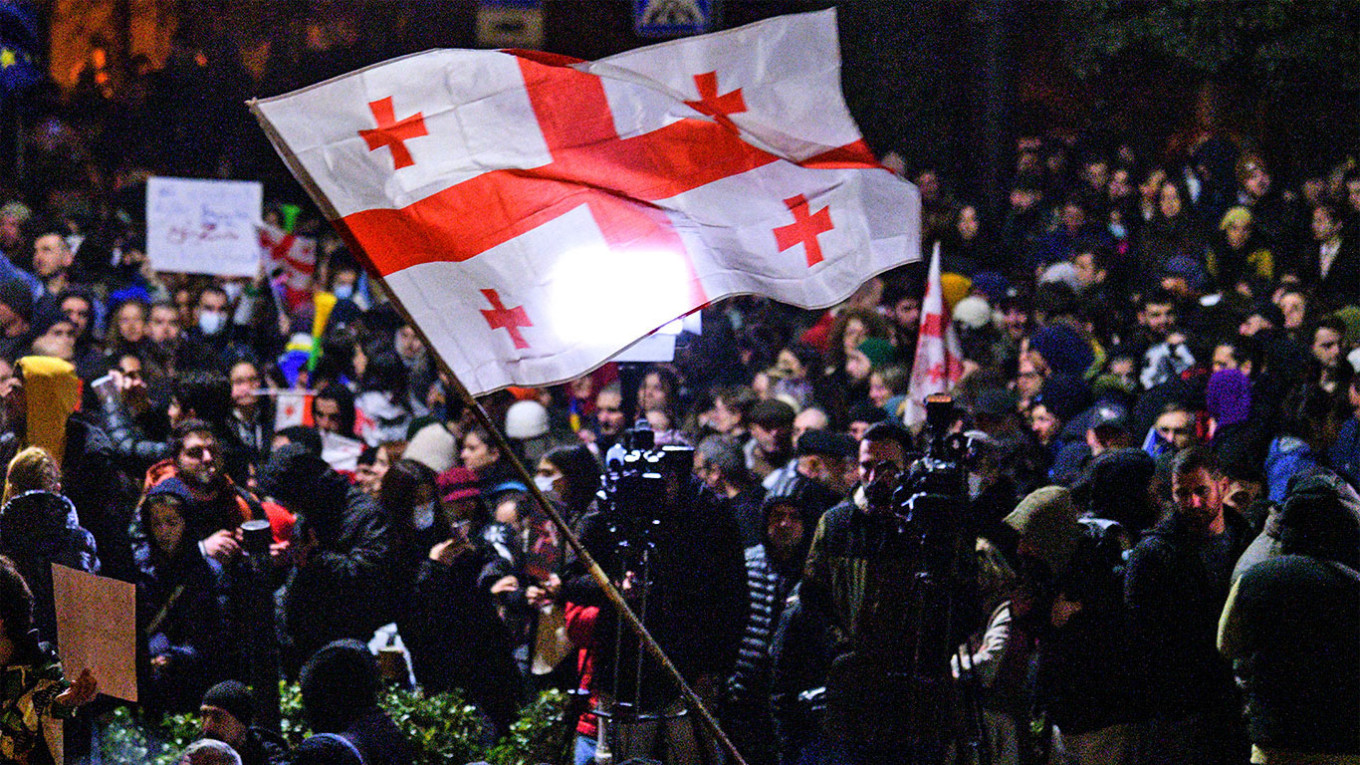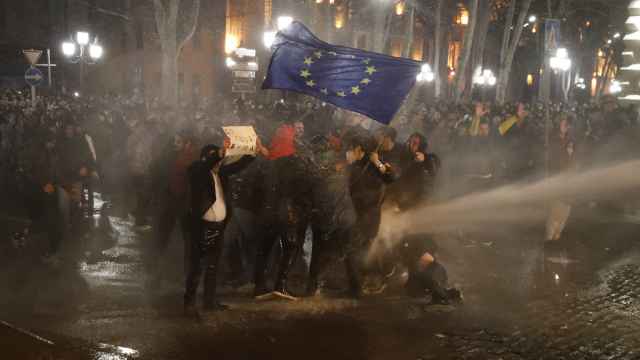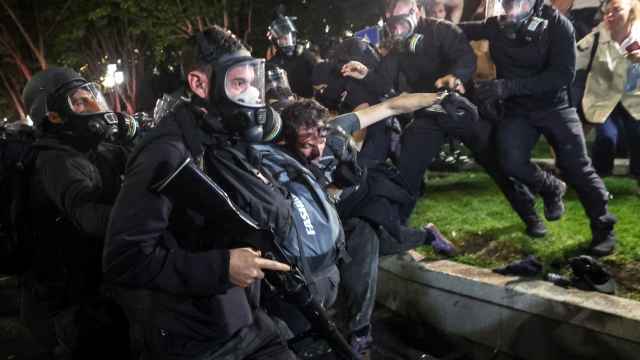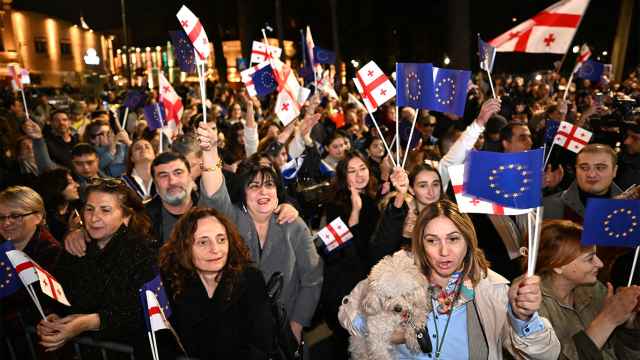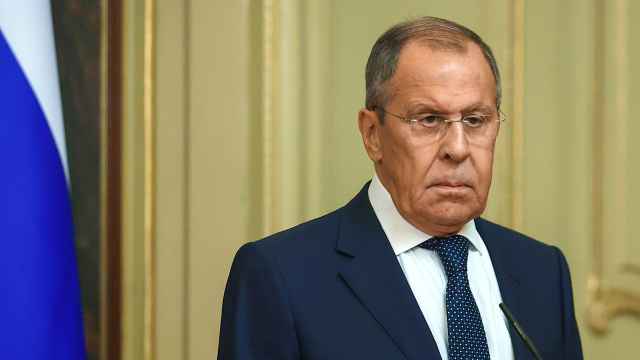The notion that Georgia's ruling party, Georgian Dream, is pro-Russian has become a persistent stereotype pushed by the Georgian opposition, experts on the region, and global media. The party’s founder — the billionaire Bidzina Ivanishvili, who made his fortune in Russia — is also plagued by accusations of holding pro-Kremlin views.
The rationale for such stereotypes is understandable at first glance. The Georgian authorities constantly accuse Ukraine and the West of attempting to involve Georgia in armed conflict with Russia. After Russia’s full-scale invasion of Ukraine, Georgia did not sanction Russia and refused to supply weapons to Ukraine, believing that would cross a red line for Moscow, and that Georgia remains as vulnerable to Russian threats as Ukraine.
Tbilisi even banned some Russian opposition figures and journalists from entering the country at a time when Georgia had become a key destination for Russian wartime exiles due to its geographical proximity and migration policy. The Kremlin has openly praised Georgia for its neutral position several since the invasion.
When it comes to action, however, there is no basis for claiming that Tbilisi is acting in Moscow’s interests. The reasons for the tensions within Georgia and Tbilisi’s recent disagreements with Brussels and Kyiv must be sought elsewhere.
The latest allegations of pro-Kremlin sympathies came in March during mass protests against Georgian Dream’s attempt to adopt a law making it possible to stigmatize certain civil society organizations as “foreign agents,” a label that Russia adopted over a decade ago. Protesters against the proposed law lambasted the authorities for pursuing a supposedly pro-Kremlin policy. Yet it is hard to see anything pro-Moscow in the actions of Georgian Dream over the past few years.
Since Russia’s 2008 invasion of Georgia, Tbilisi has had no diplomatic relations with Russia, or any direct flights. The government condemns Russian aggression, supports the territorial integrity of Ukraine, and votes in favor of Ukraine in UN resolutions.
Despite the Georgian government’s loud insistence that it would not join Western sanctions against Russia, as early as July of last year the U.S. State Department released a report noting that Georgia was observing international restrictions imposed against Russia.
The main criticism leveled against the Georgian government in terms of being pro-Russian is its intention to build a pragmatic relationship with Moscow, but that is nothing new. Back in 2015, when a NATO training center opened in Georgia, then prime minister Irakli Garibashvili said that “the training center for military personnel is in no way directed against Russia. [...] We are called upon to maintain a pragmatic approach in our relations with Russia.”
Indeed, Georgia — both the government and its opponents — considers itself the first victim of Russian imperial ambition in the post-Soviet space. Fear of Moscow is reinforced by the fact that every time Georgia has leaned too far West, relations with Moscow have soured, and the situation ended with Russia either stoking local separatism or launching a military attack against Georgia. And, crucially, every time Georgia was left to deal with Russia alone.
It’s true that Georgia’s vector toward the European Union and NATO was initially set by former President Mikheil Saakashvili, under whom tensions between Georgia and its separatist regions of Abkhazia and South Ossetia culminated in war with Russia. Saakashvili is no friend of Georgian Dream, and is currently in prison on abuse of power charges that some argue are politically motivated. Yet his departure from office did not change Georgia’s westward turn.
In 2014, an association agreement was signed with the EU, and in 2015, the NATO training center opened in Georgia. In 2017, Georgians were granted visa-free travel to the EU, and in 2018, Georgian Dream enshrined the country’s Euro-Atlantic course in the constitution. Meanwhile, none of Moscow’s tangible proposals, such as resuming direct flights, were implemented. Finally, in March 2022, the country applied for EU membership.
In a gut punch to the ruling party and a clear signal that the EU is dissatisfied with the state of affairs in the country, the European Commission granted candidate status to Ukraine and Moldova, but not to Georgia. Instead, it issued Georgia with a list of 12 recommendations.
The European Commission’s decision provoked protests in the country among Georgians who felt that their government had cost them their chance at EU membership. Georgian Dream found itself facing the difficult question of how to secure a European future without angering Moscow and still remain in power: in 2024, the party will fight for a fourth term at the ballot box. The ruling party’s less than intuitive response to the protests over the EU rejection was to draw up the “foreign agents” law, sparking mass street protests in March.
There are several explanations as to why it chose this course of action. The simplest and perhaps most accurate is that Georgian Dream wanted to limit the ability of the opposition and independent media to constantly stir things up. Another explanation is a combination of factors: resentment at the Commission’s rejection, an attempt to bargain with the EU, and the personal interests of the party’s founder Ivanishvili, who has become embroiled in a protracted lawsuit with Credit Suisse.
Despite the impressive scale of the protests against the law, they did not make the opposition any more popular. The controversial law was withdrawn, and the demonstrations mostly died down. The opposition’s attempts to ride the protest wave and dissolve parliament came to nothing.
The opposition is not very popular in Georgia. It is fragmented, marginalized, and has been exploiting the same slogans for years. Constantly accusing the authorities of pro-Russian sentiment no longer wins the opposition political points. Surveys conducted at the end of last year showed the Georgian Dream was four times more popular than Saakashvili’s opposition coalition, with 25% versus 6%. All other parties together received 13%.
According to the same poll, about 50% of respondents could not name a party that would meet their interests. Still, Georgian society agrees on one thing: an absolute majority — more than 80% — of Georgians want the country to be in the EU.
The success of Georgian Dream in the 2024 elections, therefore, will depend more on what the European Commission says in a year’s time — and things are looking up. Almost as soon as Georgian Dream abandoned the foreign agents law, the crisis dissipated.
In March, the British and German foreign ministers visited Tbilisi one after the other. It then became known that the European Commission was inclined to give Georgia candidate status. The conditions for this are not too onerous, and could be summed up as: just don’t alienate the country from the EU in the coming months.
It’s obvious that Brussels is not happy with everything in today’s Georgia, but there is no alternative force in the country on which it can rely. For this reason, Georgian Dream looks set to continue its balancing act between meeting the requirements of the EU while indulging its own authoritarian tendencies.
This article was originally published by The Carnegie Endowment for International Peace.
A Message from The Moscow Times:
Dear readers,
We are facing unprecedented challenges. Russia's Prosecutor General's Office has designated The Moscow Times as an "undesirable" organization, criminalizing our work and putting our staff at risk of prosecution. This follows our earlier unjust labeling as a "foreign agent."
These actions are direct attempts to silence independent journalism in Russia. The authorities claim our work "discredits the decisions of the Russian leadership." We see things differently: we strive to provide accurate, unbiased reporting on Russia.
We, the journalists of The Moscow Times, refuse to be silenced. But to continue our work, we need your help.
Your support, no matter how small, makes a world of difference. If you can, please support us monthly starting from just $2. It's quick to set up, and every contribution makes a significant impact.
By supporting The Moscow Times, you're defending open, independent journalism in the face of repression. Thank you for standing with us.
Remind me later.



